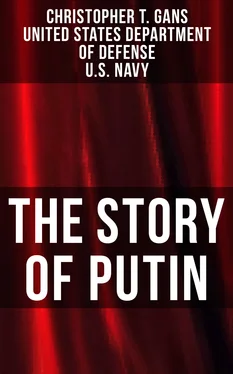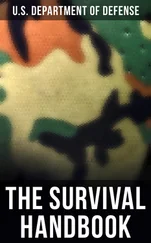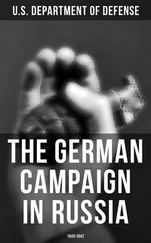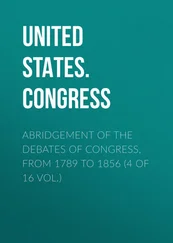This chapter will provide evidence that Vladimir Putin’s anti-Americanism over his lifetime has been a consistent personal attribute, even if temporarily behind-the-scenes given fluctuations in official Russian government attitude toward the United States. According to Peter Katzenstein, Robert Keohane, and Ivan Krastev, anti-Americanism represents a wide mental propensity to negatively view all aspects of America and American society. 1This study of Putinist anti-Americanism, therefore, will not be reduced to any single isolated incident of criticism or opposition to a particular U.S. policy or action. Rather, an extended pattern of animosity in rhetoric and actions will be observable. Putin has always been innately anti-American based on his earlier history. The vehemence of his anti-Americanism, as measured by the frequency of anti-American rhetoric and policy actions, seems to fluctuate over the course of his tenure on the global scene. The roots of his anti-Americanism, nevertheless, run too deep, formed in his early adulthood, ossified before his rise to power, and eventually displayed in earnest while in power.
1Peter Katzenstein and Robert Keohane, Anti-Americanism in World Politics (Ithaca, NY: Cornell University Press, 2007), 12; Ivan Krastev, “The Anti-American Century,” Journal of Democracy 15, no 2 (April 2004): 7.
Table of Contents
Vladimir Putin’s rise to the top of Russian political society is quite remarkable given his upbringing in a poverty-stricken Soviet family. He lived generally distant from the levers of power until he was suddenly holding those very levers. Little in his early life could be seen as a signal of his future. But it remains those early years and especially into adulthood that provided the seed of Putin’s perpetually negative outlook toward the West and the United States. Putin’s anti-Americanism, therefore, stems from his early life, failing to dramatically alter or dissipate with the evolving geopolitical situation.
1. Early Life and College
Table of Contents
Born into a poor family after the Great Patriotic War, Vladimir Putin’s childhood was marked by standard Soviet deprivation: cramped and paltry living conditions, food rationing, and isolation from the outside world. A self-described childhood “hooligan,” Putin was at best an average student and preferred to remain in the background and refrained from any leadership over his classmates. His teachers, nevertheless, recognized his intelligence, even if his grades never seemed to coincide. His childhood instructors also note his generally unforgiving nature toward anyone that Putin believes betrayed him, regardless of the severity of the issue in question. 1He took a particular liking to martial arts, specifically Judo because of the necessity of hard work, physical fitness, and blood compared to the “ballet” nature of karate. Putin’s love of Judo would continue into present day, where he still routinely practices. Putin’s admiration of those who are willing to toil in the extreme and his general loathing of any disloyalty cast some light on Putin’s more recent behavior has a head of state, especially regarding alleged slights by the United States and international community.
By the time Putin attended college at Leningrad State University (LGU), most LGU faculty were ardent communist supporters, so Putin became exposed to the most ardent anti-American and anti-Western Soviet propaganda while in college, under the guise of receiving a higher education and studying law. 2Putin’s exposure to Sovietized anti-Americanism would only increase exponentially as he now fancied a career as an officer in the KGB to do his part to protect the Soviet Union. His childhood ambitions of becoming a pilot or sailor had dissipated with age. Popular movies had portrayed a glamorized version of service within the state security apparatus, to which Putin had succumb before entering college. 3His romanticized vision of spies and KGB service continued after his initial recruitment into the security services from the University, but eventually the truly mundane nature of the service hit him like so many whose popculture vision of reality is quashed by true reality.
1Nataliya Gevorkyan, Natalya Timakova, and Andrei Kolesnikov, First Person , trans. Catherine Fitzpatrick (New York: Perseus Books Group, 2000), 13, 16.
2Eric Shiraev and Vladislav Zubock, Anti-Americanism in Russia from Stalin to Putin (New York: Palgrave, 2000), 140.
3Gevorkyan, First Person, 17.
2. Into the Shadows: Putin in the KGB and the Case for a Long Term Cognitive Predisposition
Table of Contents
The KGB recruited Vladimir Putin upon his graduating from Leningrad State University in 1975 with a law degree. Putin was stationed briefly in Leningrad observing foreigners in the city before being selected to undergo training in foreign intelligence, which he completed in 1983. He then transferred to Dresden, East Germany where his primary tasks involved monitoring politicians and communist party officials of the German Democratic Republic (GDR). 1Far from the idealized notion of espionage he had longed for, Putin described himself as merely an adept bureaucrat and information gatherer. 2His assignments within the KGB never lived up to his lofty expectations. The indoctrination process of becoming a KGB officer, however, could only exacerbate what anti-American sentiment he had developed in childhood under the Soviet propaganda system and in college during a Communist education.
Once a member of the KGB, always a member of the KGB. Vladimir Putin’s time in the Soviet-era secret police could be analogous to someone who is initiated in the Society of Freemasons: not an official cult, but nevertheless possessing a definitive cultlike culture. As a KGB officer, even if assigned to relatively non-critical posts with seemingly menial duties, Vladimir Putin was effectively indoctrinated to mistrust the United States and the West. Their anti-Americanism was involuntarily forced into them. Putin had been trained to rely on a certain thought process, a KGB mentality in which official manufacturing of enemies within and outside the nation is commonplace. 3Those enemies or manipulators often take the alleged form of a Western entity, be they real or fictitious. Putin, like many of his Soviet-era predecessors, was trained to fabricate the illusion of an enemy and brought up to discount almost anything emanating from the official (or even unofficial) correspondence of the Cold War-era United States and Western civilization as a whole. Publically available statements, documents, or transcripts are assumed to contain nothing but misleading information; “therefore, the harder the Americans try to convince the Russians that they mean no harm, the more the Kremlin becomes suspicious of U.S. intentions.” 4
The prominent academic Robert Jervis would presume that Vladimir Putin suffers from a severe case of cognitive predisposition. Jervis holds that a person’s past experiences and observance of events will dramatically affect how they interpret information in the future. 5Jervis further expounds on four variables that determine how much an event might affect an individual’s perceptual predisposition; the more variables that are applicable, the more likely the event dramatically affects said person’s predispositions. America’s and the Soviet Union’s global chess game that has come to be called the Cold War represents the event under study in this. Specifically important is Putin’s involvement in it. The first variable asks if the person experienced the event first hand. As a citizen of the Soviet Union and KGB officer stationed in divided Europe, this variable obviously applies to Putin.
Читать дальше












